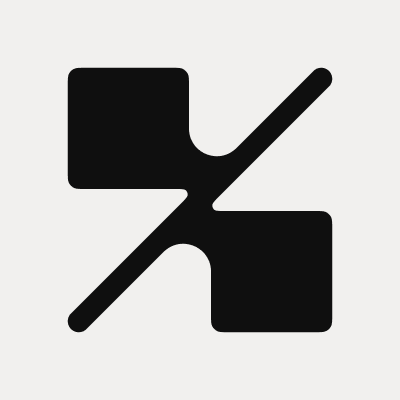What is Enjin and Its Impact on the Crypto World

What is Enjin: Revolutionizing Blockchain Gaming
The world of gaming is no stranger to innovation, constantly evolving to push the limits of technology and creativity. With the advent of blockchain technology, a new player has emerged on the scene, poised to revolutionize the gaming industry: Enjin. As gamers, developers, and investors alike turn their attention to this burgeoning technology, the question arises—what exactly is Enjin, and how is it changing the landscape of gaming? Let’s dive into the fascinating world of blockchain gaming and explore the capabilities and potential of Enjin.
Understanding Enjin
Enjin is a blockchain-based platform designed to facilitate the creation, integration, and management of digital assets within gaming ecosystems. Launched in 2009 initially as a community platform, Enjin has evolved over the years, eventually delving into the possibilities offered by blockchain technology. In 2017, Enjin conducted a successful Initial Coin Offering (ICO), raising approximately $18.9 million to develop its blockchain ecosystem.
At its core, Enjin provides a comprehensive suite of tools and services that empower game developers to create and integrate Non-Fungible Tokens (NFTs) and other blockchain-based assets into their games. By leveraging the power of blockchain, Enjin creates opportunities for players to truly own their in-game items, trade them with others, and even take them across different games, thereby fostering a more interconnected and player-centric gaming economy.
Key Features of Enjin
Enjin Coin (ENJ)
The Enjin ecosystem centers around its native cryptocurrency, Enjin Coin (ENJ). ENJ is an ERC-20 token on the Ethereum blockchain, which functions as the primary currency within the Enjin ecosystem. It's used to back the value of blockchain assets and is involved in various transactions and trading activities. Each digital asset created using Enjin’s platform contains ENJ, ensuring inherent value and liquidity. The concept of melting down assets back into ENJ adds a layer of flexibility and financial security for stakeholders.
Enjin Wallet
When dealing with digital assets, security and ease-of-use are critical factors. The Bitget Wallet, a secure and user-friendly mobile wallet, supports a wide range of cryptocurrencies along with ERC-721 and ERC-1155 tokens. Designed with gamers in mind, Bitget Wallet enables users to safely store and manage their digital assets, including those created on the Enjin platform.
Enjin Blockchain SDKs
Enjin provides a collection of Software Development Kits (SDKs), allowing developers to seamlessly integrate blockchain assets into their games and applications. These tools simplify the process of creating, managing, and integrating NFTs, ensuring that even developers with limited blockchain experience can participate in the Enjin ecosystem. By providing SDKs for popular game development engines like Unity and Godot, Enjin opens the door for a wide array of creative projects.
Enjin Marketplace
The Enjin Marketplace is a digital storefront where users can buy, sell, and trade blockchain assets. This decentralized marketplace enhances the liquidity of in-game items and NFTs while providing a platform for players to capitalize on their digital collections. Enjin's marketplace serves as a hub for gamers and collectors to discover and exchange new assets, broadening the scope of blockchain-based commerce within the gaming industry.
ERC-1155 Token Standard
Enjin's key technological innovation is the ERC-1155 token standard, which offers a more efficient alternative to the traditional ERC-721 standard used for NFTs. The ERC-1155 standard allows developers to create fungible, non-fungible, and semi-fungible tokens all within a single contract, reducing transaction costs and enhancing system efficiency. With ERC-1155, developers can mint multiple tokens at once and utilize batch transfers, streamlining in-game economies and ensuring a fluid player experience.
Benefits of Enjin in Gaming
Enjin offers numerous advantages for both developers and players, challenging conventional gaming paradigms and introducing a suite of groundbreaking possibilities.
True Ownership
Traditional gaming often restricts players’ ownership of in-game assets, limiting their ability to trade or sell items acquired during play. Enjin empowers players by providing true ownership of their digital assets via the blockchain. Each item, be it a rare weapon or a unique character skin, can be independently owned, traded, and exchanged—just like any other physical item.
Interoperability
One of the most exciting aspects of Enjin is the potential for interoperability between different games and platforms. By owning blockchain assets, players can transfer items between compatible games or even across different blockchain-based ecosystems. This offers a new layer of freedom and versatility, transforming how players interact with virtual worlds and characters.
Monetization Opportunities
For developers, Enjin introduces diverse monetization strategies that can generate additional revenue streams. From selling rare NFTs to creating unique in-game items that appeal to collectors, Enjin provides developers with a dynamic range of tools to engage players and foster economic activity within their games.
Community Engagement
Enjin enables deeper community engagement by allowing players to own and trade game assets. This ownership model encourages community participation and loyalty, as players become more invested in the game's economy and success. Developers can cultivate passionate communities around their games, incentivizing players to contribute to the game's development and growth.
The Future of Enjin and Blockchain Gaming
As blockchain technology continues to gain traction, Enjin stands poised to lead the charge towards a new age of gaming. By democratizing asset ownership and introducing innovative gameplay possibilities, Enjin bridges the gap between the virtual and real worlds, enabling both players and developers to reap the benefits of blockchain technology.
The growing interest in NFTs and blockchain gaming suggests a bright future for platforms like Enjin. As more developers experiment with Enjin’s tools and embrace blockchain’s potential, the gaming industry is likely to see a wider adoption of decentralized technologies. This, in turn, paves the way for a gaming landscape that prioritizes player agency, transparency, and innovation.
The journey of Enjin from a community platform to a blockchain game-changer is nothing short of remarkable. As we stand on the cusp of this digital revolution, one thing is clear—Enjin is more than just a fleeting trend. It's a powerful toolset that is shaping the future of gaming, offering endless potential for creativity, collaboration, and connection.
























